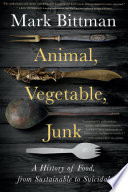

Most ebook files are in PDF format, so you can easily read them using various software such as Foxit Reader or directly on the Google Chrome browser.
Some ebook files are released by publishers in other formats such as .awz, .mobi, .epub, .fb2, etc. You may need to install specific software to read these formats on mobile/PC, such as Calibre.
Please read the tutorial at this link: https://ebookbell.com/faq
We offer FREE conversion to the popular formats you request; however, this may take some time. Therefore, right after payment, please email us, and we will try to provide the service as quickly as possible.
For some exceptional file formats or broken links (if any), please refrain from opening any disputes. Instead, email us first, and we will try to assist within a maximum of 6 hours.
EbookBell Team

5.0
98 reviews"Epic and engrossing." —The New York Times Book Review
From the #1 New York Times bestselling author and pioneering journalist, an expansive look at how history has been shaped by humanity’s appetite for food, farmland, and the money behind it all—and how a better future is within reach.
The story of humankind is usually told as one of technological innovation and economic influence—of arrowheads and atomic bombs, settlers and stock markets. But behind it all, there is an even more fundamental driver: Food.
In Animal, Vegetable, Junk, trusted food authority Mark Bittman offers a panoramic view of how the frenzy for food has driven human history to some of its most catastrophic moments, from slavery and colonialism to famine and genocide—and to our current moment, wherein Big Food exacerbates climate change, plunders our planet, and sickens its people. Even still, Bittman refuses to concede that the battle is lost, pointing to activists, workers, and governments around the world who are choosing well-being over corporate greed and gluttony, and fighting to free society from Big Food’s grip.
Sweeping, impassioned, and ultimately full of hope, Animal, Vegetable, Junk reveals not only how food has shaped our past, but also how we can transform it to reclaim our future.